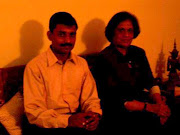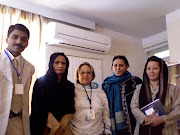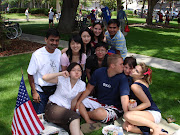In the globalized world of today, the trajectory of internal conflicts are often influenced by international developments and pressures. Analysts of internal conflicts have concluded that an international pressure in internal conflicts is eventually inevitable as ‘a passive as well as an active factor’. This was explicit when the European Union had expressed its disagreement and agreed not to receive LTTE delegations in all its member countries. But the question is how to ensure such pressure is positive rather than negative?
In a statement issued on September 26, 2005 the European Union has condemned the continuing use of violence and terrorism by the Liberation Tigers of Tamil Eelam (LTTE). It says, "The pursuit of political goals by such totally unacceptable methods only serves to damage the LTTE's standing and credibility as a negotiating partner and gravely endangers the Peace Process so much desired by the people of Sri Lanka. The statement goes further to reveal tough measures against the LTTE by stating that it is actively considering the formal Listing of the LTTE as a terrorist organization. In the meantime, the European Union has agreed that with immediate effect, delegations from the LTTE will no longer be received in any of the EU Member States until further notice.
It has come as a serious blow to the support links of LTTE. It is an open-secret that for the LTTE, most of the support – morally and monetarily – comes in hand from Europe. The presence of considerable numerical strength of Tamil Diaspora in and around Europe has given them legitimate rights to influence the policy decisions of those countries viz-a-viz Sri Lanka. With the exception of the USA, UK, Australia and India, which has banned the LTTE as a terrorist outfit, a number of European governments have followed a policy of constructive engagement with both parties to the conflict in Sri Lanka. ‘Constructive engagement’ with the LTTE has meant direct interaction with the LTTE in Kilinochchi, on issues relevant to the peace process, reconstruction and rehabilitating activities and hosting LTTE delegations in their own countries.
Since the Cease Fire Agreement in 2002, the LTTE has made several tours to Europe. In the past, the Sri Lankan government has encouraged these visits, in the belief that it is a ‘useful exercise’ for the LTTE to learn about democracy, concepts of governance, power sharing, federalism etc., and ‘to broaden their horizons and that it will assist in their transformation from a terrorist outfit to a democratic institution’. Today the government says ‘all this would have been okay if there had been reforms in the LTTE, if the group had started embracing democracy and human rights. Otherwise what is the point?’ The government wants the West to show its commitment against terrorism by taking steps that would force the LTTE to give up a policy wedded to violence and assassinations.
The Sri Lankan government believes that the European community has an important role to play by applying pressure on the LTTE. The recent Kadirgamar assassination has thrown up hard questions about the credibility of LTTE. The Sri Lankan Government is happy with the strong condemnations by the West in the wake of the Kadirgamar killing but feels these are not enough. According to Jayanth Dhanapala, ‘the route of appeasement or the carrot and more carrots approach, have not worked with the LTTE and hence there is a need for concerted international action that is immediate and tangible against the LTTE, to include not only those that have a bearing on the LTTE, but also its numerous front organizations in many countries through which it continues its reign of terror in Sri Lanka’.
As a result, the recent statement of the EU refers to the LTTE activities in the member countries and agreed that ‘each Member State will, where necessary, take additional national measures to check and curb illegal or undesirable activities (including issues of funding and propaganda) of the LTTE, its related organizations and known individual supporters.’
Opposing the statement of the EU, Tamil National Alliance (TNA) said it cannot accept the decisions European Union has taken against the LTTE. This would only distant away LTTE from entering into mainstream politics. If the European Union was really committed to finding a peaceful solution to the Sri Lanka’s ethnic issue they should ‘condemn every unwarranted act of parties concerned’.
The actions advocated by the EU may be seemed to be unwarranted or pregnant with consequences inimical to the professed goals of ‘peace in Sri Lanka’. As Sri Lanka enters a democratic process of electing a new President, it is imperative not to bother both the warring parties even by a third party. This may be an opportune moment to undertake a fundamental review or ‘redesign’ of the peace process in Sri Lanka. But the question is: Can you maximize the space for Peace in Sri Lanka by minimizing the space for LTTE?












No comments:
Post a Comment